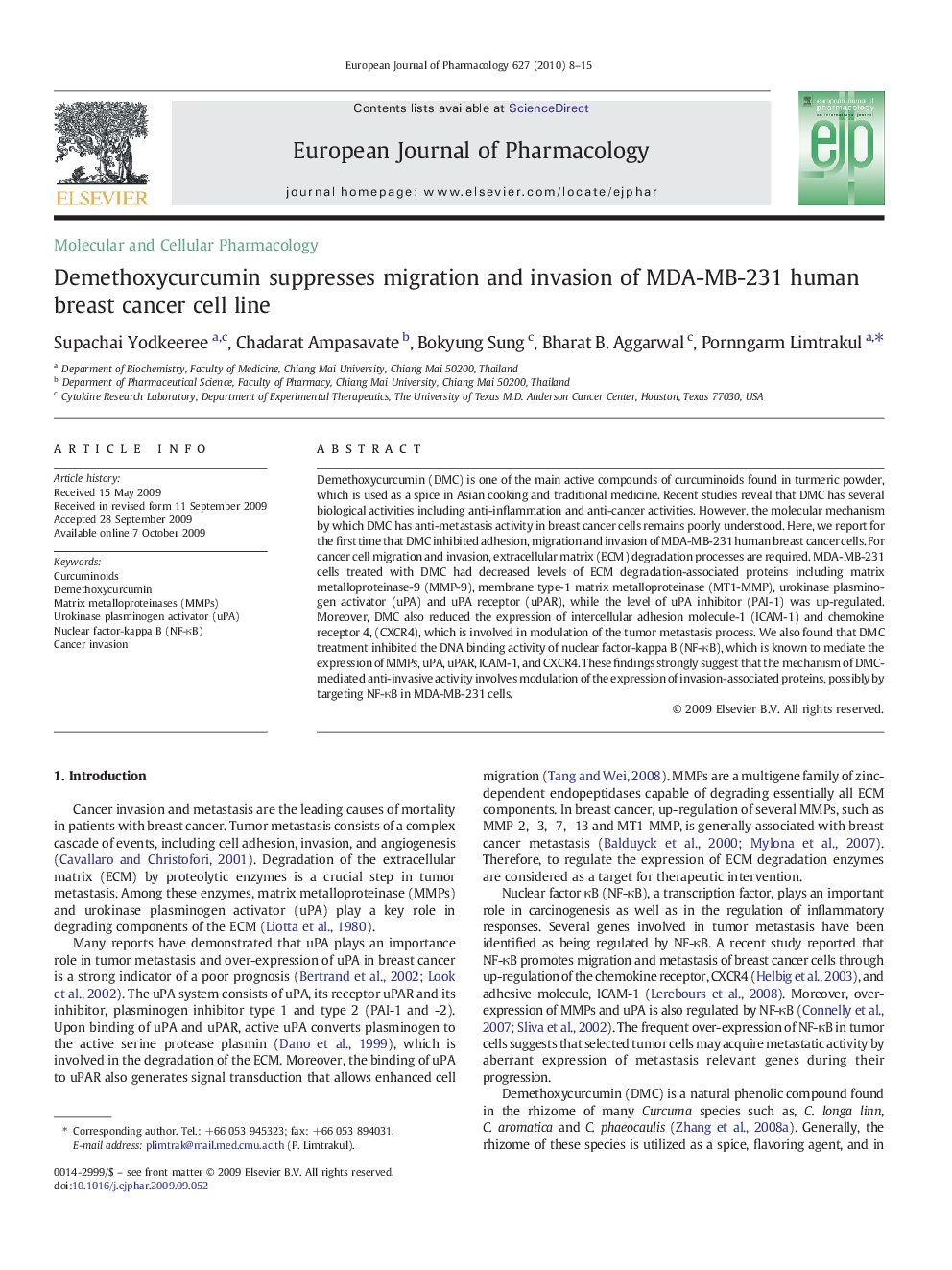| Article ID | Journal | Published Year | Pages | File Type |
|---|---|---|---|---|
| 2533739 | European Journal of Pharmacology | 2010 | 8 Pages |
Demethoxycurcumin (DMC) is one of the main active compounds of curcuminoids found in turmeric powder, which is used as a spice in Asian cooking and traditional medicine. Recent studies reveal that DMC has several biological activities including anti-inflammation and anti-cancer activities. However, the molecular mechanism by which DMC has anti-metastasis activity in breast cancer cells remains poorly understood. Here, we report for the first time that DMC inhibited adhesion, migration and invasion of MDA-MB-231 human breast cancer cells. For cancer cell migration and invasion, extracellular matrix (ECM) degradation processes are required. MDA-MB-231 cells treated with DMC had decreased levels of ECM degradation-associated proteins including matrix metalloproteinase-9 (MMP-9), membrane type-1 matrix metalloproteinase (MT1-MMP), urokinase plasminogen activator (uPA) and uPA receptor (uPAR), while the level of uPA inhibitor (PAI-1) was up-regulated. Moreover, DMC also reduced the expression of intercellular adhesion molecule-1 (ICAM-1) and chemokine receptor 4, (CXCR4), which is involved in modulation of the tumor metastasis process. We also found that DMC treatment inhibited the DNA binding activity of nuclear factor-kappa B (NF-κB), which is known to mediate the expression of MMPs, uPA, uPAR, ICAM-1, and CXCR4. These findings strongly suggest that the mechanism of DMC-mediated anti-invasive activity involves modulation of the expression of invasion-associated proteins, possibly by targeting NF-κB in MDA-MB-231 cells.
